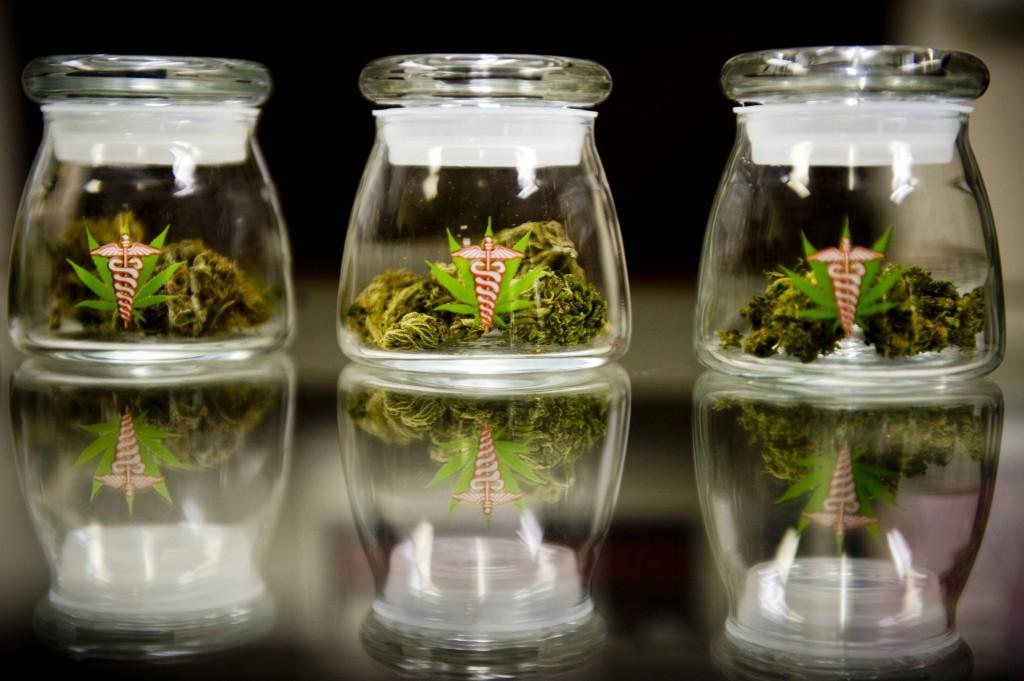Clayton “High”

Disclaimer: (*) NAMES HAVE BEEN CHANGED TO PROTECT THE IDENTITIES OF STUDENTS.
Cannabis, marijuana, pot, weed, mary jane; all are names for an emerging recreational drug that is becoming as popular as tobacco and alcohol, and is rapidly becoming more available as new state laws legalize it.
This new trend has affected high schools around the nation as well. In the past decade, a steady rise in marijuana use and acceptance has started to change how people in the U.S. view marijuana.
According to a federal report, over 12 percent of eighth graders and 36 percent of high school seniors report that they had smoked pot in the past year, with 60 percent of students saying that marijuana didn’t seem to be detrimental to their health.
When CHS Student Resource Officer, John Zlatic, was in high school, any kind of drug offense could follow a student the rest of his or her life. Today, the consequences of getting caught with under 35 grams of marijuana can be the equivalent of getting a mere traffic ticket, and can easily be taken off of records.
“I think the culture has really changed. When I was in high school, [marijuana] was a lot more restricted back then, frowned upon,†Zlatic said. “The problem was that any drug arrest barred you from a lot of things [such as] colleges and jobs.â€
Today, recreational marijuana is legal in two states, Colorado and Washington. And while the drug is still illegal under federal law, Colorado and Washington’s flexible attitudes towards marijuana are shared by other states. According to a survey conducted by Gallup Politics, 58 percent of citizens surveyed approve of the legalization of pot in America in 2013. That statistic is up from a low 30 percent in 2001.
On June 1 of last year, St. Louis Mayor Francis Slay signed a law reducing the penalty for possessing pot from one year in prison and a $1000 fine, to a $100 to $500 fine, while Missouri law remained the same.
These national and regional changes seem to have local influence as well. As the country’s perspective on marijuana has become more lax, it seems many CHS students are beginning to adopt a similar relaxed attitude towards use of the drug. At CHS, many of the students who use pot on a regular basis are willing to admit and discuss their consumption habits.
“I’m pretty open about talking about it,†CHS Senior Jay* said. “My parents know that I smoke. They’re okay with it as long as I’m doing it not often obviously and not on school days.â€
This relaxed attitude towards marijuana use seems to be more prevalent among the upperclassmen.
“I don’t know why people are so open about it. I think that’s so dumb,†freshman Joseph* said. “It surprises me because of how strict Clayton can be and the academic [pressure] there is here.â€
However, regardless of how comfortably students talk about their marijuana use at CHS, it is clear that consumption of marijuana at Clayton starts at early ages for many.
“The first time [I smoked] was with kids in my grade my freshman year,†senior Sandra* said. “I used to do it a lot less when I was younger, my freshman, sophomore and junior years. I do it more now, maybe twice a week. When I was an underclassman, I did it probably once every couple of months.â€
For some high school students, marijuana has become an alternative to alcohol for a quick high during the regular weekday due to what they describe as more subtle side effects. Instead of suffering the repercussions of a painful hangover, marijuana’s effects wear off only after a few hours.
“In my opinion, weed is better than alcohol [through my own] experiences at Clayton,†Jay said. “I think in moderation, it’s more acceptable to smoke than to drink. I think that smoking doesn’t necessarily have the repercussions that drinking can have.â€
Many CHS students believe that if marijuana is smoked “responsibly,†then it is okay.
“Most of my friends have tried it at least once,†Sandra said. “The people I associate with do it responsibly, so they’ll either only do it on the weekend or only do it after all their homework is done. Being sucked into the culture a little too much can be dangerous, but for the most part, people use it recreationally and are responsible about it.â€
Catching students who are high during the school day can prove challenging. Since marijuana can come packaged in many concealable ways, finding the substance is often extremely difficult. An electronic cigarette can easily be passed off as an ink pen.
“Teachers are taught to recognize the signs when the kids come back [from being off campus], if they come back.†Zlatic said.
But that’s not always enough.
“I don’t think they’re enforcing [the law] quite enough here [at CHS],†Joseph said.
As far as consequences go, punishments can vary, and is highly dependent on the situation.
If one is caught under the influence or in possession of weed as a high school student, a suspension is usually put in place, but first time offenders can look to a drug information class to reduce the duration of the punishment.
Through the police department, the administration here at Clayton has eyes and ears trained on CHS students if they ever get tangled with law enforcement.
“A lot of kids are surprised, because what happens is they will not even be on school grounds – they’ll be at a party or someplace and they’ll end up in contact with the police … they don’t [have the] understanding that I’ll end up finding that information out,†Zlatic said.
Particularly, getting caught with weed as an athlete outside of school has a devastating outcome. Essentially, a drug offense could be the end of your high school athletic career as you know it.
Prior to playing a sport, all students are required to sign an agreement with MSHSAA, the Missouri State High School Activities Association. It states that as long as a court case is active, a student isn’t allowed to participate in their sport. This means no practices or games until you plead for a charge, which sometimes can be a very lengthy process.
Much like the effects of marijuana itself, the changes in the CHS student body have been gradual and subtle. Marijuana use is slowly becoming more accepted, riding momentum from national trend. While pot doesn’t carry the weighty dangers of heroin or the obvious risks of drinking, the drug comes with its own issues. More likely than not, these issues will be further explored in coming years as marijuana use becomes more ingrained in the national culture.
A $50 or more donation includes a subscription to the Clayton High School Globe 2024-2025 print news magazine.
We will mail a copy of our issues to the recipients of your choice.
Your donation helps preserve the tangible experience of print journalism, ensuring that student voices reach our community and that student democracy thrives.

Lawrence Hu is currently a sophomore at Clayton High School and first year editor for The Globe. He is an avid writer, photographer and distributer. While rival editor Max Steinbaum...










